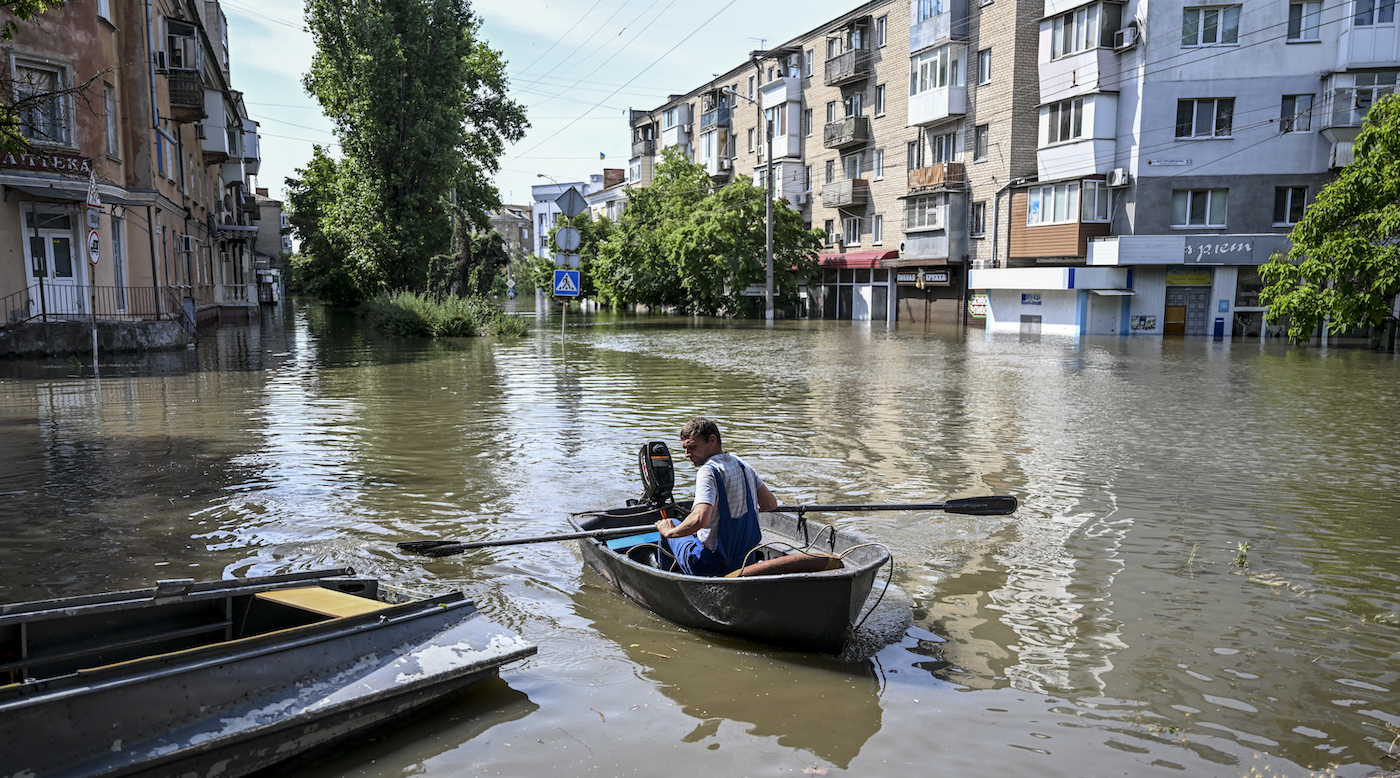Nova Kakhovka dam breach labelled ‘worst ecological disaster since Chernobyl’
Mass floods have forced thousands to flee their homes in Ukraine and are expected to have long-lasting environmental impacts

A free daily email with the biggest news stories of the day – and the best features from TheWeek.com
You are now subscribed
Your newsletter sign-up was successful
Volodymyr Zelenskyy has descibed the breach of Ukraine’s Nova Kakhovka dam as “an environmental bomb of mass destruction”, amid warnings of the most ecologically damaging disaster “since Chernobyl”.
The collapse on Tuesday of the dam, on the Dnieper River in the southern region of Kherson, has resulted in widespread flooding. The full extent of the damage cannot be assessed until the water has subsided, but “at the very least, it has forced the evacuation of thousands of people, flooded national parks and jeopardised water supplies to millions of people”, said The Guardian.
Former minister of ecology Ostap Semerak told the paper that the disaster would “have an impact on Romania, Georgia, Turkey and Bulgaria”, as floodwater contaminated by agrochemicals and oil products reaches the Black Sea. The “environmental catastrophe” may be “the worst in Ukraine since Chernobyl”, he added.
The Week
Escape your echo chamber. Get the facts behind the news, plus analysis from multiple perspectives.

Sign up for The Week's Free Newsletters
From our morning news briefing to a weekly Good News Newsletter, get the best of The Week delivered directly to your inbox.
From our morning news briefing to a weekly Good News Newsletter, get the best of The Week delivered directly to your inbox.
Analysts warned that in a “worst-case scenario”, the breach may also pose a danger to the nearby Zaporizhzhia Nuclear Power Plant. The cooling systems at the plant use water from the dam’s vast reservoir, so falling water levels could pose a “risk of nuclear fuel overheating and potentially exploding”, said the i news site.
The International Energy Agency tweeted that there was “no immediate nuclear safety risk at plant”, which can still draw water from a large cooling pond on the grounds.
But the dam’s destruction will almost certainly put further stress on global supply chains, by contaminating one of the “world's most fertile agricultural countries”, said Reuters. The mud left behind by the floods will “probably take years to clear” and will also wash “industrial chemicals and lubricants into the soil”, causing long-lasting damage to “ecoystems and biodiversity”.
Moscow and Kyiv have blamed each other for the breach of the Russian-controlled dam. According to engineering and munitions experts, a deliberate explosion inside the barrier “most likely caused its collapse”, The New York Times reported. Structural failure or an attack from outside the dam were believed to be “possible but less plausible explanations”, the paper added.
A free daily email with the biggest news stories of the day – and the best features from TheWeek.com
Ukraine has accused Russia of committing “ecocide”, and the office of the country’s prosecutor general has opened an investigation into whether the “blast is a war crime or could be possible criminal environmental destruction”, said Sky News.
Richard Windsor is a freelance writer for The Week Digital. He began his journalism career writing about politics and sport while studying at the University of Southampton. He then worked across various football publications before specialising in cycling for almost nine years, covering major races including the Tour de France and interviewing some of the sport’s top riders. He led Cycling Weekly’s digital platforms as editor for seven of those years, helping to transform the publication into the UK’s largest cycling website. He now works as a freelance writer, editor and consultant.